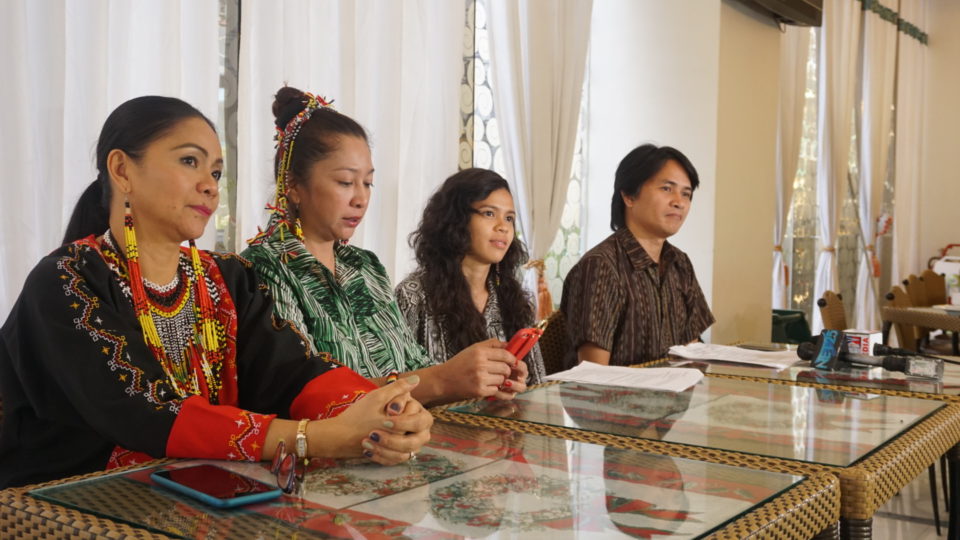Controversy continues to hound the upcoming TV series Bagani, which is slated to air on the ABS-CBN network tonight. In a press conference today, indigenous groups are calling out the show for misusing the word “Bagani” (in some areas Bahani), which is a term only bestowed to warriors of native tribes in northern Mindanao.
“Being a Bagani does not only mean ‘to have exemplary fighting skills,’ but to be able to defend the people from colonizers and entities who are robbing us from our identity,” spokesperson Melissa Claire Icdang Barrera said in a prepared statement for several tribes from the Mindanao region.
“It’s not a word you can just use lightly,” she said.
“Traditionally, in Manobo culture, to be a Bagani, you have to have killed at least 10 human threats to the community, or ancestral lands,” Melchor Umpan Bayawan, a representative from the Bagobo community in Central Mindanao, said in Cebuano.
READ: New Filipino TV show under fire for casting part-white actors in brownface
Another way to get the title Bagani, Bayawan said, is to kill snakes. “For every 10 snakes killed is equal to one human,” he told Coconuts Manila.
“For each kill, a warrior gets one tassel on his tangkulo (headdress). Ten or more tassels on the headdress signifies who in the community are Bagani,” he said.
“For others, this might be a minor error,” Barrera told Coconuts Manila on the sidelines of a press conference held today. “But it’s already 2018 and Lumads are still victims of cultural misappropriations. Shows like this — especially those that are broadcast nationwide — perpetuates the continuous trivialization of our history and narratives.”
She said that while fans of the show might argue that the show might be merely a fantasy series that shouldn’t be taken literally, culturally insensitive shows “prevents Filipinos from learning more about and relating to the different ethnolinguistic groups of this country.”
Commission on Higher Education (CHED) Commissioner Ronald Adamat, who used to represent the Indigenous Peoples (IP) sector in the House of Representatives, posted a letter on Facebook he wrote to the ABS-CBN Network.
“The writers and producers of this teleserye (TV series) may have overlooked and neglected the cultural sensitivities of our Indigenous Peoples terminology and endemic only to IPs, ended up being used in a teleserye I suspect is devoid of real meaning and substance,” he said in his letter.
He added: “It is not enough for writers and producers of movies and teleseryes to come up with concepts, titles and characters that would sell and create blockbusters yet carry with them half-truths and lies that destroy and negate the real essence of an IP terminology, as in the case of ‘Bagani’.”
The group is asking for a dialogue with the network to explain the cultural significance of the word “Bagani” to the show’s producers.
“This is to ensure that the show does not violate any part of the Indigenous People’s Rights Act,” Barrera said.
The group suggests that if the story could not be re-written to use the word more appropriately, they ask that the word not be used, or a disclaimer be placed in the beginning of the show.
“The disclaimer should clarify that the use of ‘Bagani’ in the show is not associated with the real Bagani in Mindanao, describe for viewers what a Bagani is, and acknowledge that Lumad (native) groups have actual Baganis,” Barrera said.
ABS-CBN has not yet responded to the group’s call as of posting time.
“We are not trying to pick a fight with ABS-CBN,” artist Bae Bayang Barrios, who spoke at the press conference, said in Tagalog. “We ask that a part of our culture that is very sacred be respected.”
The show Bagani first received backlash last month for its casting of fair-skinned Filipinos to play characters in a story that was supposed to be based on Philippine folklore.





Butch Tan says
They should first call out the NPA, the armed wing of the Communist Party of the Philippines (CPP) for using “Pula’ng Bagani” as an epithet for its armed fighters,